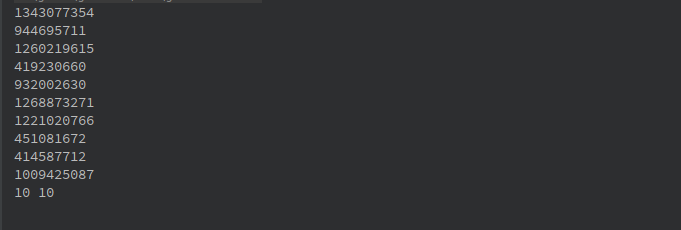单例模式 懒汉式 为什么要两次判空
class User {
public static int i;
public static int j;
private static User user = null;
public User() {}
public static User getInstance() {
if(user == null) {
try {
Thread.sleep(1);
} catch (InterruptedException e) {
}
synchronized (User.class) {
i++;
if(user == null) {
user = new User();
j++;
return user;
}
}
}
return user;
}
private String name;
private int age;
}
public static void main(String[] args) {
int i = 10;
ExecutorService executorService = Executors.newFixedThreadPool(10);
do {
executorService.execute(()->
{
User u = User.getInstance();
System.out.println(System.identityHashCode(u));
});
i--;
} while (i >0);
try {
Thread.sleep(10000);
} catch (InterruptedException e) {
e.printStackTrace();
}
System.out.println(User.getInstance().i + " " + User.getInstance().j);
}
如果不判空的话,会出现多个线程在等待获取当前的锁,当其中的一个线程释放掉锁后,又会重新new 一个对象.就会出现不同的对象

但有了判空之后



